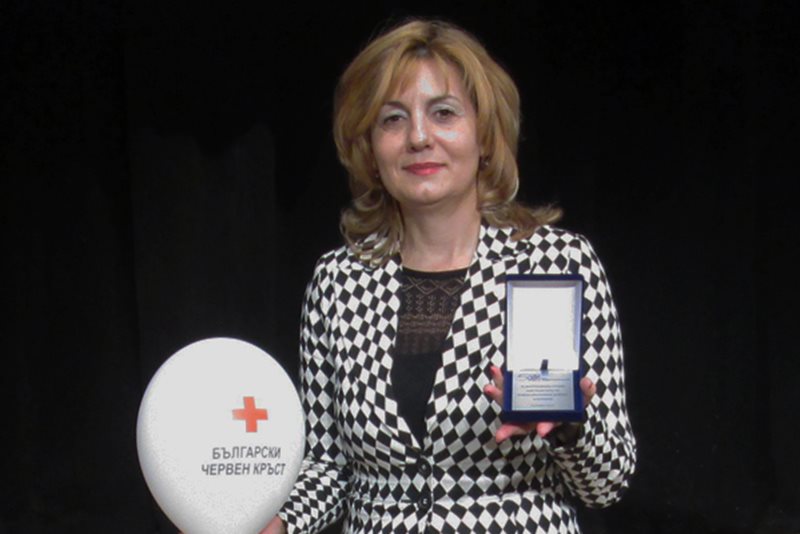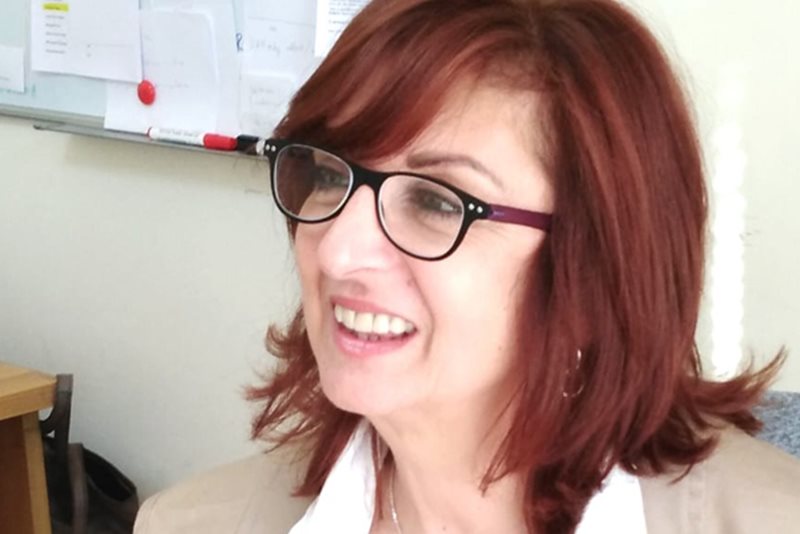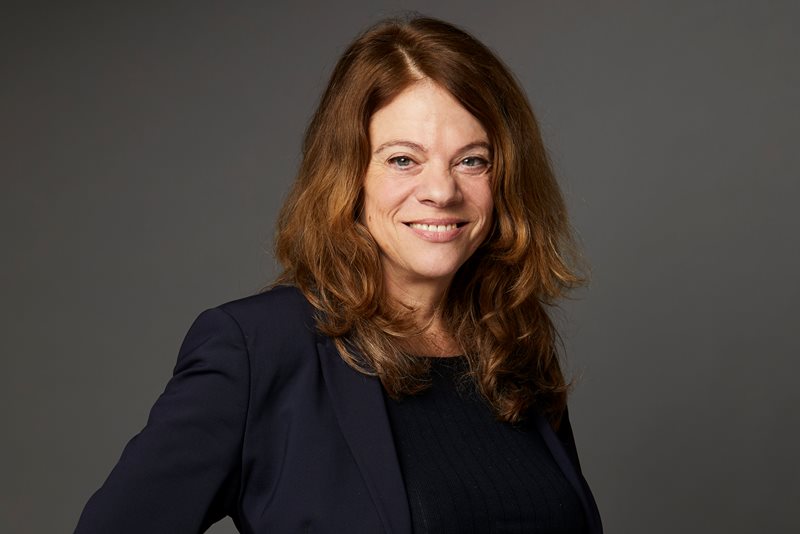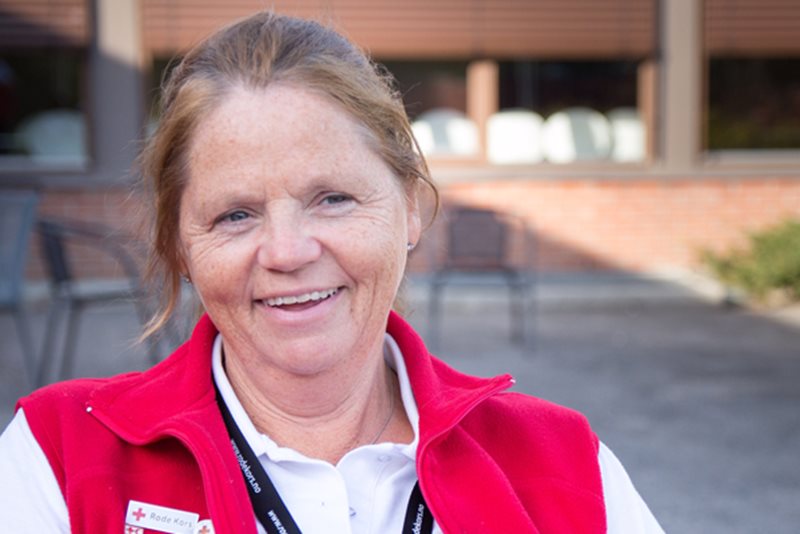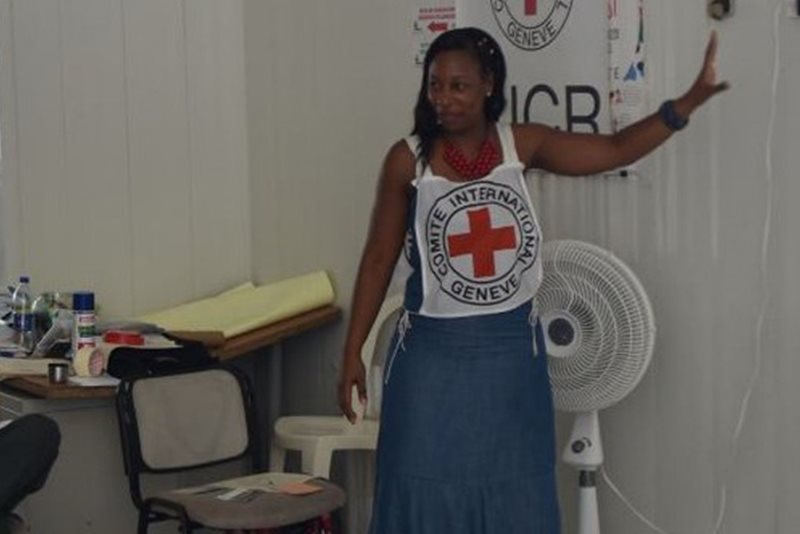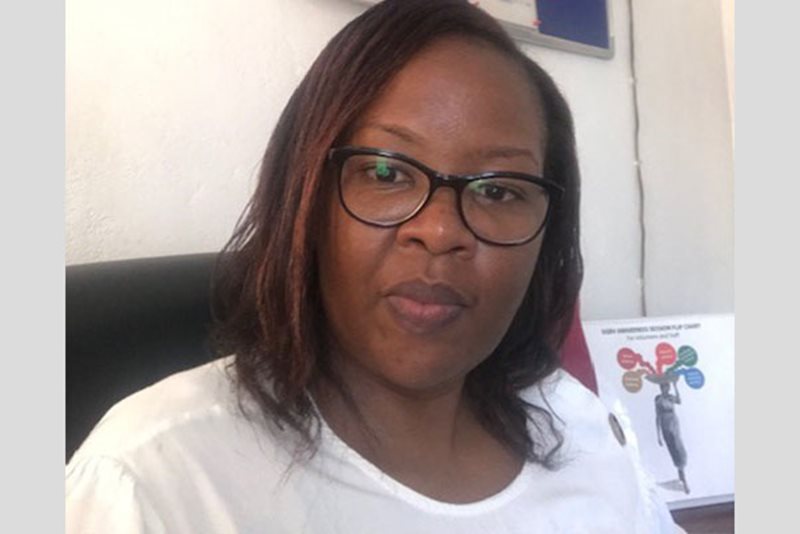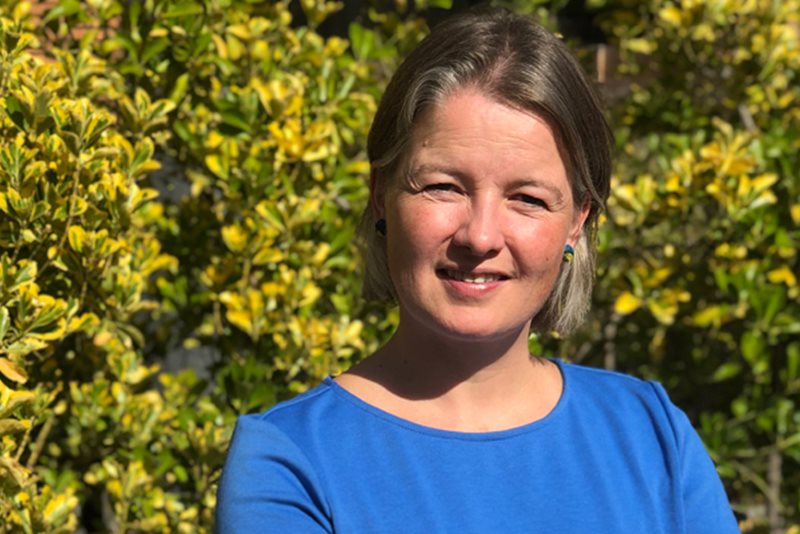

After my internship at the Netherlands Red Cross Society I never really left. You could say that I had a little break, backpacking for four months after writing my thesis about the Red Cross emblem and getting my university degree. Once I got back home I found a job at the Red Cross in September 2001. Since then I’ve had many different roles and responsibilities.
In 2003 I joined the Youth & Diversity team and got elected into the RCRC European Coordination Committee (ECC) for youth in Lido di Jesolo. We participated in the Fiaccolata. I will never forget the endless line of people from all over the world carrying torches through the hills where the Battle of Solferino took place, literally walking in the footsteps of Henry Dunant… What an intense and powerful experience.
As ECC we launched the ‘1 out of 3’ campaign in 2004, calling for more youth representatives in National Society delegations during statutory and regional meetings. This brought us around the table with IFRC President Del Toro, sharing our concerns about the fact that IFRC’s Youth commission was not exactly young. He heard us, because one year later during the Statutory Meetings in Seoul, Ian Courtenay from Belize RC was elected chairman of the Youth Commission, in line with our profile.
Another achievement I am proud of is from my time at the RC/EU Office in Brussels (2007-08). It was my task to rally the EU National Societies around a “respect for diversity” programme, to learn from each other how you can strengthen your organisation by embracing & promoting diversity. With the support of a steering group of EUNS representatives and the head of the IFRC Principles & Values department, Katrien Beekman, we got 25 of the 27 EUNS on board plus Norwegian and Swiss RC.
Beginning of 2009 I was invited to join a small group of youth representatives in a cabin in the snowy mountains of Switzerland. There we started to develop exercises, that would form the basis of the ”Youth as Agents of Behavioural Change” toolkit. Now, this has become IFRC’s flagship initiative on promoting a culture of non-violence and peace and empowering individuals to take up an ethical leadership role within their communities. What a privilege to be part of this.
Today I work for the International Assistance department as Partnership & Portfolio Coordinator for Lebanon and the Palestinian Territories. It is humbling to see the dedication of the volunteers and staff of the Lebanese Red Cross and Palestine Red Crescent, working under very challenging circumstances and risking their lives to help others. They inspire me to give my utmost every day in support of their humanitarian work.
My work for the Red Cross is so much more than a job. It is more of a passion and I dare to say that it makes me a better person and therefore a better mother. I realise that I am in a privileged situation with my husband, family and friends supporting my work and with managers who have always given me the space to organise my own work and time as it fits my life, trusting me to deliver what is needed. That made it possible for my husband and I to live in Kenya for nine months during the adoption process of our son. My manager and colleagues made it possible for me to work remote during that time, while my husband had to give up his job to fulfil our dream to become parents.
Balancing work and private life can be challenging, especially as we women tend to feel guilty about not being able to give a hundred percent in all aspects of our lives. We should stop doing this and focus on what we can achieve in the different phases of our lives and get the respect and support we need and deserve along the way. Why should a woman not be able to have a career anymore or develop herself when she decides to work part-time while her children are young? And is a career less valuable if you do not aim for the top of the ladder? John Quincy Adams once said: “If your actions inspire others to dream more, learn more, do more and become more, you are a leader.” Women around the world are doing this every day in many shapes and forms. And yes, women should have equal opportunities to get into any type of position, but for their voices to be heard should not depend on the number of women in higher positions.

“The women of Castiglione nursed and soothed the wounded soldiers, ut when the Red Cross was born, no women were in attendance. Today women are still nursing the wounded... But are they in on the decision making?”



